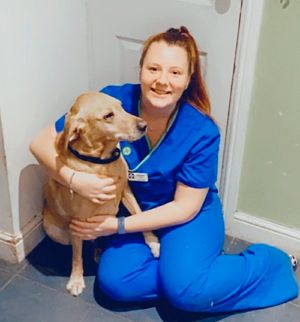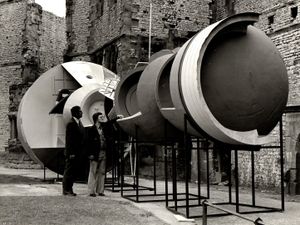The hero dogs who save lives
It’s not only human blood donors who can save lives – dogs can also come to the rescue when a fellow canine is in need.

Just like people, sick and injured dogs often need blood transfusions when undergoing surgery or if they have conditions such as anaemia.
Canine donors are essential to make these invaluable treatments, which can mean the difference between life and death for seriously ill dogs, possible.
Gemma Webb, head veterinary nurse at White Cross Vets in Bloxwich, has recently set up blood donation bank and is encouraging owners to sign up their dogs.
“I’d previously had experience setting up a blood donor scheme with Pet Blood Bank UK which was very successful. We’re excited to have brought the initiative to Bloxwich and we are currently recruiting doggy lifesavers to come along to donate blood,” she tells Weekend.
Gemma has already started registering donors, including her own Labrador Darcey, who are putting their best paws forward to help others.
Canine blood transfusions date back centuries – the first successful recorded blood donation was not human to human, but dog to dog.
In 1665, a physician named Richard Lower successfully performed a blood transfusion between two dogs, some 150 years before the first successful human to human exchange was managed.
As veterinary medicine advances and new treatments are discovered, the demand for blood continues to grow.
“Sometimes we see dogs with serious injuries such as a ruptured spleen who have lost a lot of blood, so they need blood before going into surgery. Also, there are pets who might bleed excessively during major surgery or dogs that have anaemia that also need blood,” explains Gemma.
Similar to humans, dogs also have different blood types and will either be DEA 1 positive or negative.
Only 30 per cent of dogs eligible to donate in the UK have negative blood type and demand for this is very high because it can be given to any dog in an emergency.
Dog breeds more likely to have negative blood type include border collies, German shepherds, American bulldogs, greyhounds, lurchers, English bull terriers, flat coated retrievers pointers and old English sheepdogs.
To qualify as a donor, they must be aged between one and eight years old and weigh over 25 kilograms. They must be up to date with all their vaccinations and have never travelled abroad.
A good temperament is desirable and they should be comfortable going to the vets and meeting new people.
It’s not recommended for dogs that are anxious or nervous, wary of new people or fearful at the vets because they may find the donation process stressful.
“The whole process takes about 30 minutes, but the dogs are only giving blood for between five and ten minutes of that. We carry out a pre-screening test and try the dog out with the clippers to see if they are relaxed and once they are happy, and the results come back clear, we can proceed. We lie them down on a table and three of us keep them calm whilst a fourth takes the blood. After taking the blood the dog enjoys food, water and picks a toy to take home.
“It’s an easy process that the dogs are happy with and once we have donors registered, we will have access to their blood type, allowing us to generate our very own emergency database if we ever need to perform an urgent blood transfusion. The hero dogs are also given a bandana and a goodie bag,” explains Gemma.
Launched in 2007, Pet Blood Bank UK is the only charity that provides a canine blood bank service for all veterinary practitioners across the UK. More than 11,000 dogs are registered and each donation can help to save the lives of up to four others.
As part of its charitable remit, its aim is to advance animal health and welfare and to relieve suffering by providing quick and convenient access to blood.
Blood collected by Pet Blood Bank UK is taken to the charity’s centre in Loughborough, Leicestershire, for processing.
The donation is transported in a protective box which allows it to cool down gradually to around 20°C. This is the optimum temperature for processing blood, which involves spinning the bag to separate its plasma and red blood cells. Both are then stored until needed by a vet – the plasma is frozen for up to five years and the red blood cells are refrigerated for up to six weeks.
The charity sends out more than 5,000 units of blood to vet surgeries every year and other animal blood donations could soon be possible, including cats.
When blood is ordered, it is packed carefully in a temperature controlled box and sent by courier to the vet practice that needs it. The blood is warmed to body temperature by the vet before it is given to a sick or injured dog.
Earlier this year, a Labrador named Stumpy, from Coventry, became the highest donating doggy blood donor in the UK. He has saved the lives of 120 other dogs by giving his negative type blood more than 30 times.
White Cross Vets has 22 practices in the UK, including branches in Wolverhampton, Tividale and Kings Heath. Owners wanting to find out more about their dog donating blood at Bloxwich can call Gemma on 01922 667 010 or visit www.whitecrossvets.co.uk





